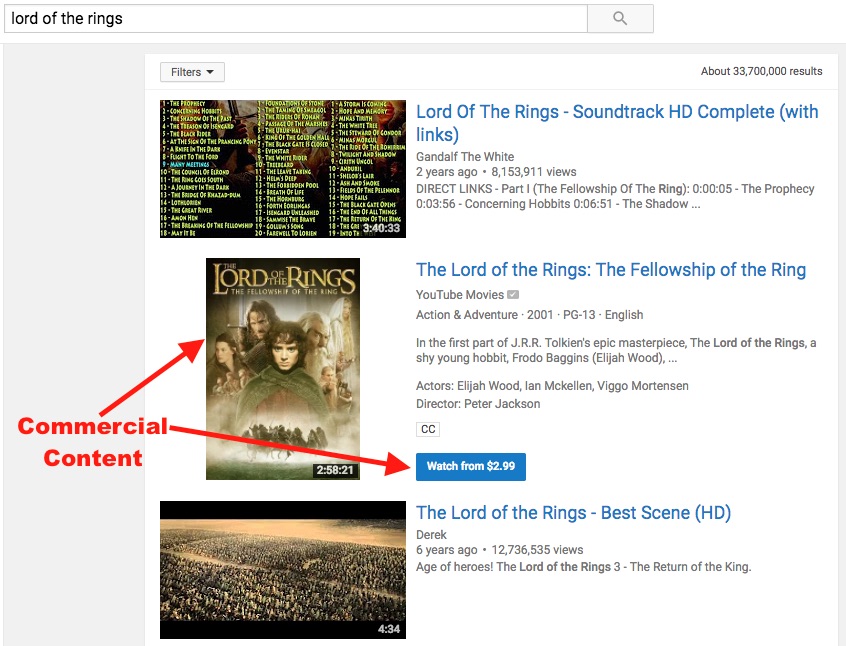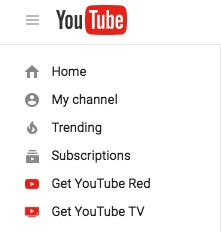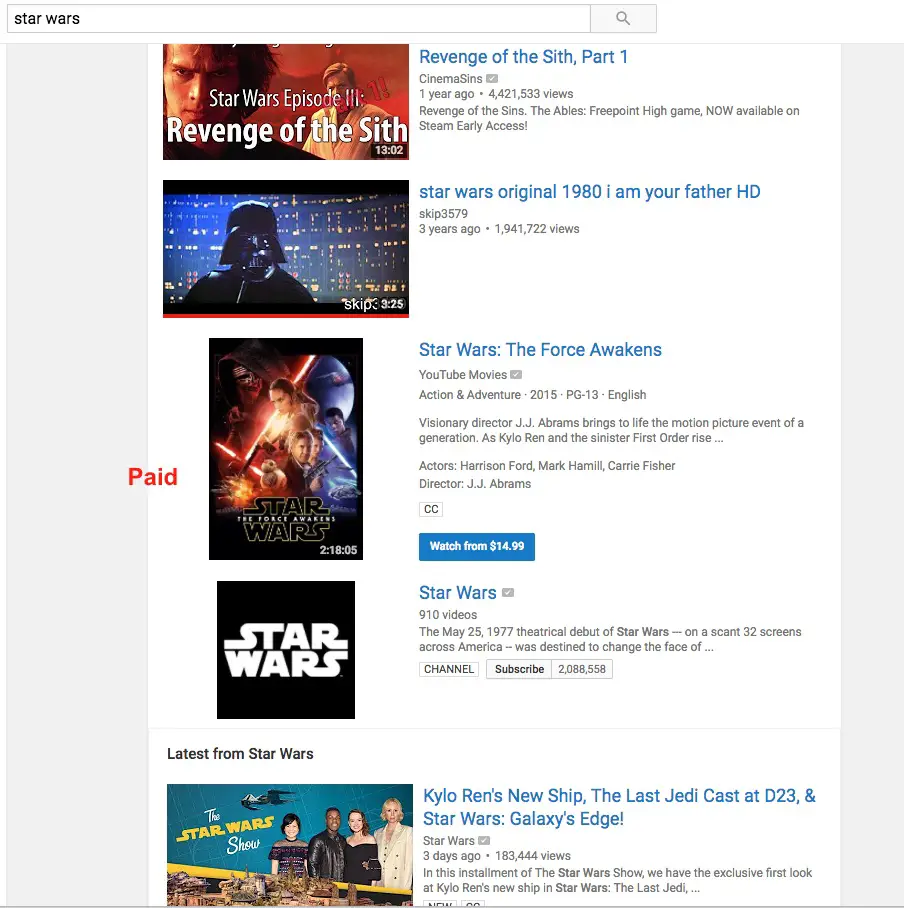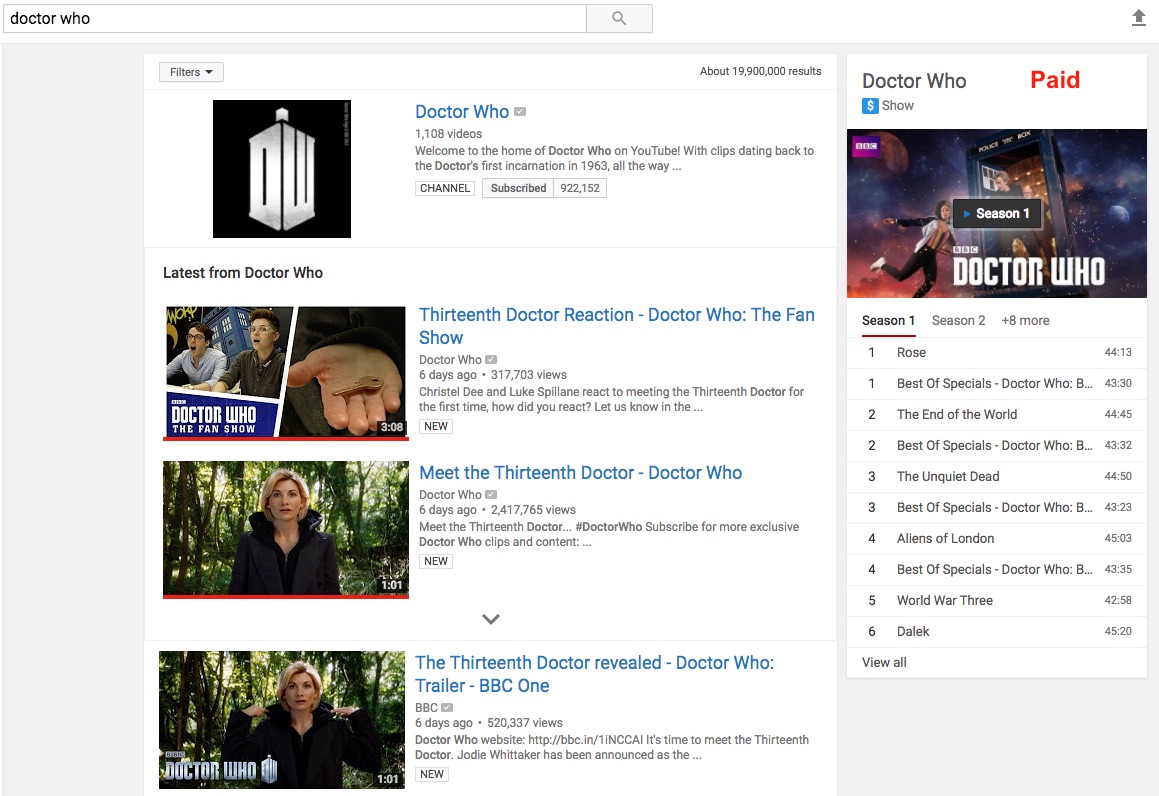; Date: Sat Jul 22 2017
Tags: YouTube »»»» Google »»»»
When YouTube launched all those years ago, before Google bought YouTube, it was a video service allowing anyone to upload videos about anything they wanted. Cat videos, a guy with a light saber, another mouthing words to a popular Romanian song, more cat videos, the FAIL videos, a girl sharing with us a fake scripted life, and on and on. We all built up a cycle of activity around YouTube. Some people just posted whatever, for example the people trying out stunts, yelling "watch this", then falling flat on their face or worse. That genre has evolved to where people filming extreme stunts sometimes fall to their death while filming the stunt. Others made a business for themselves, for example the Grow Your Greens guy taught many people about gardening while clearly earning lots of revenue from advertising running opposite his videos. Maybe it's one of those it's too good to last deals, but lots of people used YouTube as a platform for launching careers in independently produced video commentary on whatever they want to say. Lately there are signs that Google is moving towards making big money deals with big incumbent entertainment studios. At the moment the independent producers still have a place at the table, but the commercial content from mainstream media is encroaching. Are we on a slippery slope where YouTube won't have any space for individual content creators?

It's most obvious today in search results. I've collected a few samples of commercial items showing up in YouTube search results.
At this level it seems benign, doesn't it? Scattered among search results are items for which you must pay money to view the content. This doesn't occur for every YouTube search, for example a search for
piston rings shows up no commercial content but simply videos about changing the piston rings in an engine. Another about growing artichoke's brings up gardening videos.
It is easiest to find commercial results in searches related to TV shows or movies. We have an example above, and a couple more below.

In the upper-left navigation menu, the "Get YouTube Red" and "Get YouTube TV" links are also pitches to sign up for paid YouTube services.

On the YouTube home page, the service shows selections it thinks you'll want to see based on your viewing habits. This example here is videos that are surely uploaded not by individuals but by movie studios. Did those movie studios pay Google to insert these trailer videos even in cases they wouldn't organically appear?
Another similar block are the Vevo videos. Vevo is a trusted source for music videos that are known to be legitimate. Does Vevo pay for placement for their videos?

This block on the YouTube home page takes you to YouTube channels related to the named movies. YouTube has lots of auto-generated channels, and these here may be such channels and are appearing organically based on the algorithm. But, what if the movie studies pay for placement to raise the frequency of appearance of these movie-related channels?
https://www.youtube.com/yt/advertise/ -- YouTube obviously offers an avenue for advertisers to insert video advertisements into other videos. Anyone not subscribing to YouTube Red is well aware that television-like-advertising has invaded YouTube.
According to Bloomberg News YouTube TV is looking to supplant peoples Cable TV subscriptions for $35/month.
In 2014
Adweek asked whether YouTube's new premium model would push out independent creators. No solid evidence is given to support the question, because Google's habit is to not publicize anything and leave everyone in the dark about their business intentions. Adweek does print this statement: “Our goal is to continue making YouTube an amazing music experience, both as a global platform for fans and artists to connect, and as a revenue source for the music industry. We’re adding subscription-based features for music on YouTube with this in mind,” according to a Google statement sent to Gizmodo.
In April 2017
the New York Times reported on changes in advertising policy affecting individual creators. Specifically named is The David Pakman show, whose ad revenues plummeted earlier this year due to an algorithm change. His business is to host a radio program that also publishes videos on YouTube. He'd earned enough advertising revenue to pay himself and a small staff enough salary to keep themselves going. But when advertising revenue from Google drying up is an existential threat to his business.
In March 2017
Adage reported on advertising algorithm changes due to advertisements appearing to unrelated or in some case terroristic videos. The big advertisers were complaining over the automated placements "because ads were appearing alongside objectionable, and even terrorist-backed, videos." We can understand that, surely any advertiser wants better targeting of advertisements, and doesn't want to be associated with bad stuff like videos inciting hatred or terrorism. This may be behind the drop in revenues seen by some on YouTube.
https://creatoracademy.youtube.com/page/education?tab=all&hl=en -- YouTube publishes a broad spectrum of training material for people looking to build a business by publishing content on YouTube.
This last bit - people whose business is publishing content on YouTube - is a key leg of what makes YouTube work for Google. Many legions of individuals had the dream of publishing videos about this or that or something else, via YouTube. In turn, Google offers advertising dollars and presumably a cut of any YouTube Red revenue. Or publishers can opt out of the advertising and instead use the videos to advertise other services. Many TV channels routinely post snippets from their programming as a way to draw viewers to their TV channel, for example. Or a Doctor might post videos meant to build credibility and draw patients.
The point is that this legion of people is what makes YouTube so attractive. We get to view a dizzyingly large array of videos on YouTube "for free" (other than the advertising), and somehow the video creators are being incentivized to do so.
We can see the encroachment of a new type of video into YouTube. Previously YouTube was all about the individual creator. Nowadays big media forces are using YouTube to reach audiences. In some cases that's posting clips from TV programs or whatnot. But with the new paid content items entering YouTube, there's a new avenue for Big Media.
The problem (if there is one) right now is the question of whether paid videos are pushing aside the non-paid videos. A little test --- a search for
Grow Artichoke returns 20 results, while searching for Star Wars returns 22 results, either one or two of which are paid results. It would appear then that the number of non-paid results is the same, and the paid results are an addition.
At the moment it's still acceptable. But, will YouTube always remain a place for individuals to upload whatever they want? Or will Google sell out to big money interests?













